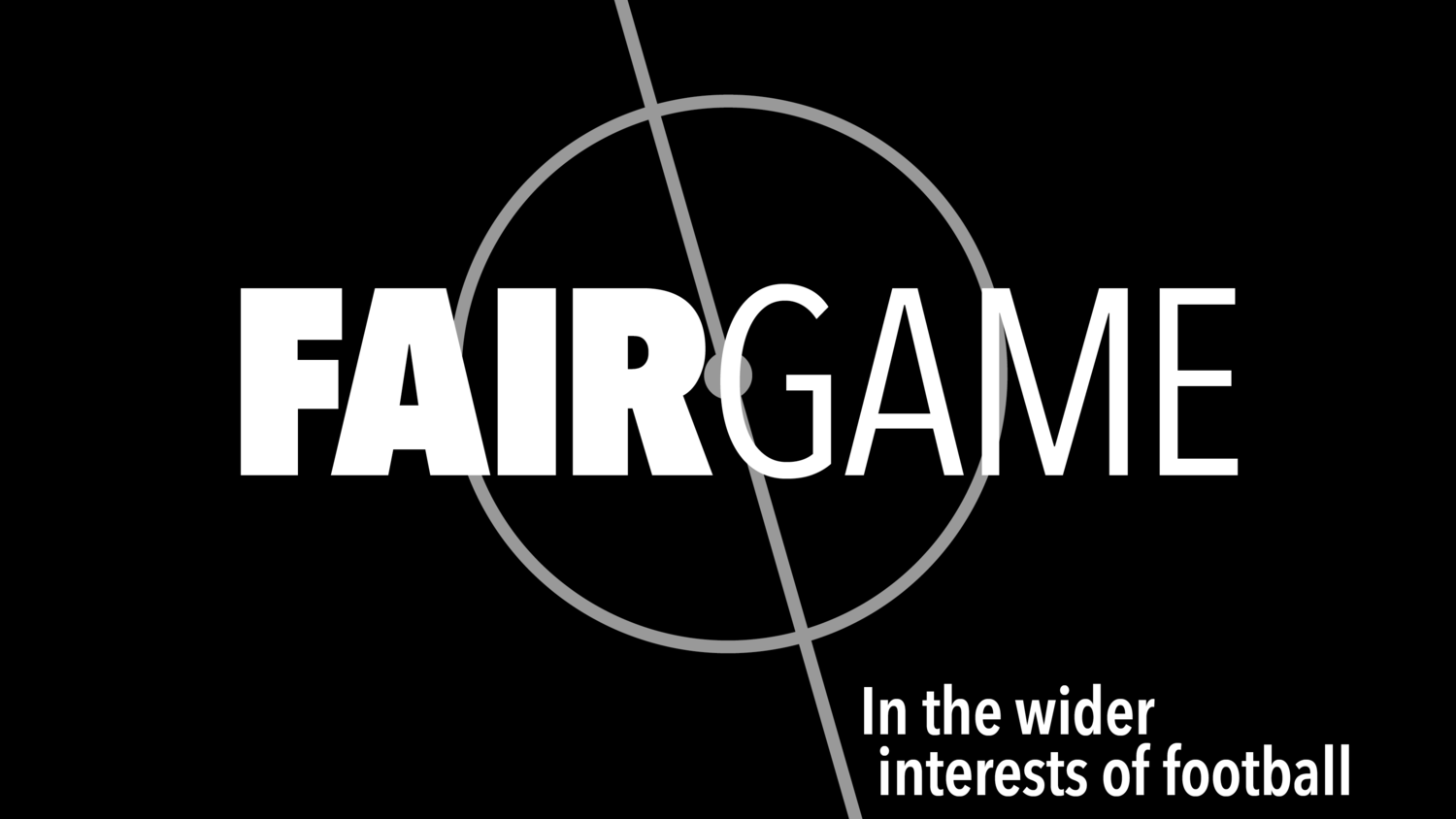Fair Game’s new report exposes football’s failed financial flow
LONDON, 22 APRIL: NEW data from football campaign group Fair Game has revealed the need to bolster the powers of the proposed football regulator to prevent the ‘total collapse of the football pyramid’.
The data is being released a day before the Football Governance Bill has its second reading in Parliament.
Analysts have assessed 20 years’ worth of financial data, which has shown the growing financial gulf between clubs across all four professional leagues.
Key findings in the report include that the financial distribution of TV income amongst the divisions is creating a gulf that is unsustainable. For every £1,000 from the broadcast deal, £882.42 goes to Premier League clubs; £73.48 to Championship clubs in receipt of parachute payments and £32.85 to Championship clubs not in receipt of parachute payments.
This falls to £6.22 for League One clubs; £4.15 for League Two clubs, National League clubs get 58p while it drops to just 15p for National League North and South clubs.
The report has also identified that 58% of clubs across all four professional leagues are technically insolvent, which includes almost half of the clubs in the Premier League and more than three quarters of clubs in the Championship in the 2022/23 season.
The gulf between clubs in the Championship is growing between those in receipt of ‘parachute payments’, which are controlled by the Premier League, and those who don’t.
In the first 11 seasons of parachute payments, only 10 clubs in receipt of them bounced back. But over the last four seasons that proportion has grown – with two relegated clubs promoted back to the Premier League in each of those four seasons. This current season has all three relegated clubs in the top four in the Championship.
The financial flow is also seriously impacted by the current voting structures of both the Premier League and the English Football League. It only takes seven Premier League clubs to veto commercial decisions, including parachute payments, while Championship clubs hold sway over the EFL.
The research, looked at revenue, wage spend, league position, points total and average attendances, on 14 different parameters.
PL: Premier League; CP - PP: Club getting parachute payments; CP - NPP: Other Championship clubs; L1: League One clubs; L2: League Two clubs
Fair Game, which represents 34 clubs across the football pyramid, is using the new data to further strengthen its argument for a strong football regulator.
The Football Governance Bill will get its second reading in Parliament tomorrow (Tuesday 23 April), with MPs across all parties having the opportunity to shape the Bill for the greater good of all football clubs, fans and wider communities.
Part Six of the proposed Bill outlines rules around financial distribution. As it stands, the regulator will have little or no say in how football finances are distributed, with parachute payments being explicitly ruled out of their remit. And the Bill will fail to deliver on its primary objective: to protect the financial sustainability of English football.
Fair Game is calling for an overhaul of Part Six of the Bill. The new briefing also outlines what amendments need to be made to the legislation.
Niall Couper, CEO of Fair Game, said:
“Our experts have looked at the data going back to the start of parachute payments in 2007 and the picture is bleak.
“The football pyramid is crumbling before our very eyes. At every level it is falling apart and a continuation of the current system could see its total collapse.
“The gaps between the haves and have nots in football are growing. And the only bodies that can currently reverse the trend are controlled by the ‘haves’.”
Couper added:
“Legislation is the starting point to create a more sustainable future, but Part Six of the Bill on financial distribution needs to be completely re-written.
“If the proposed football regulator is to achieve its No 1 objective of securing the financial sustainability of the game then it must take full control of football’s financial flow. Leaving it in the hands of the current football authorities, as the data proves, is the road to ruin.”
Adam Davis, Fair Game’s finance analyst, said:
“The data is undeniable. The current distribution of football’s finances is making the game financially unsustainable.
“To move up the pyramid, clubs are having to spend more and more each year. Choosing to prioritise competition today over sustainability tomorrow through an over extension of the ‘club credit card’ and increasing reliance on benefactors.
“This runs the risk of the club collapsing if that benefactor can no longer prop them up, leaves, or gets bored.”
As MPs prepare to debate the Bill, Fair Game has proposed the following:
The Bill’s No 1 objective must be to protect and promote the sustainability of the English football pyramid and it is at the heart of all financial distributions in football.
Enhance the powers of the Bill’s “Independent Panel of Experts”.
Give the Panel the power to set parameters that financial proposals (including broadcast deals and parachute and solidarity payments) must meet.
The parameters must include measures to close the growing financial gaps, reward clubs that are financially sustainable, and support community and grassroots initiatives.
Ensure the Independent Regulator has the power to impose a deal if these parameters are not met.
Read the full Fair Game Report briefing and download infographics here
